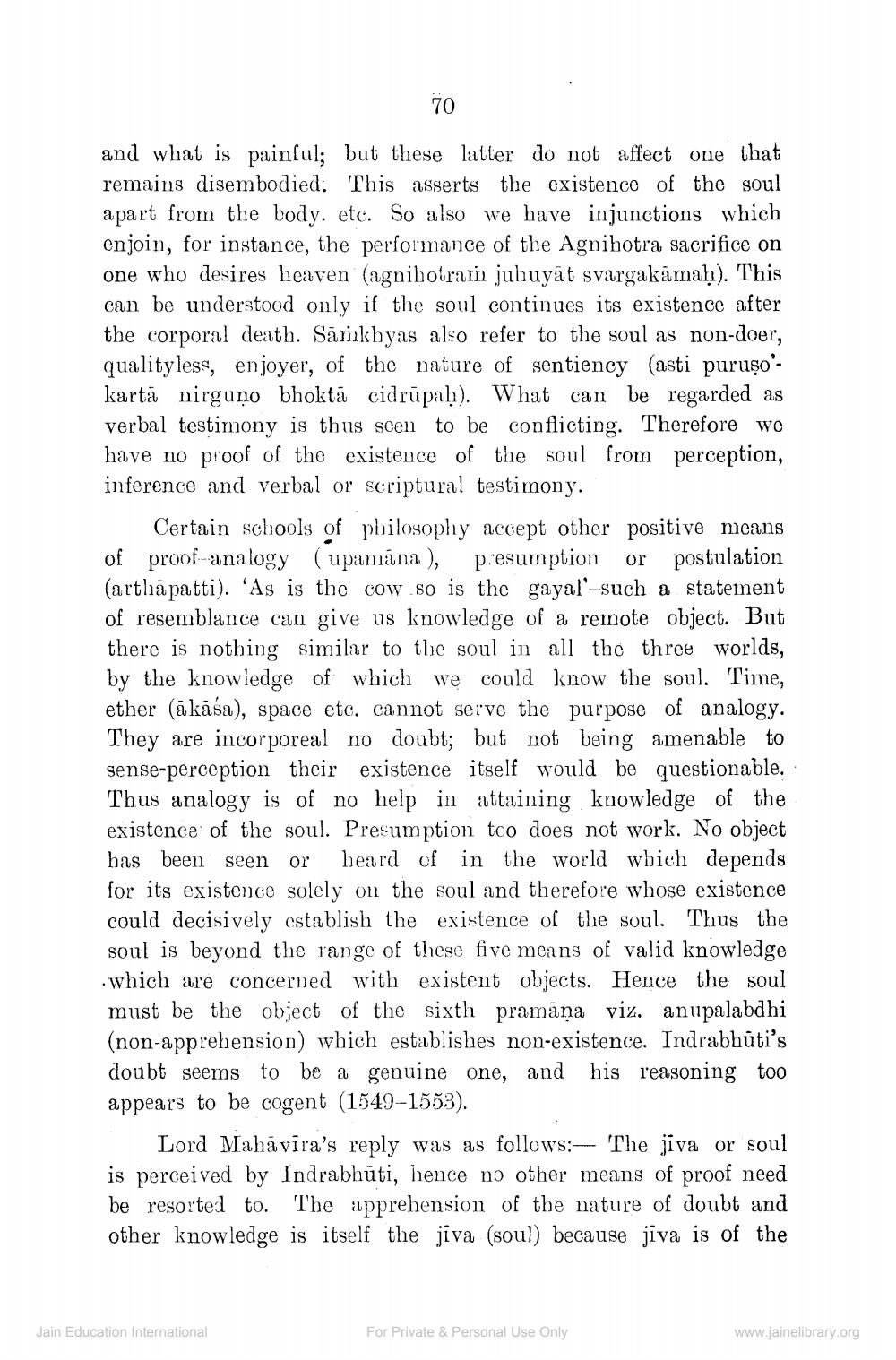________________
70
and what is painful; but these latter do not affect one that remains disembodied. This asserts the existence of the soul apart from the body. etc. So also we have injunctions which enjoin, for instance, the performance of the Agnihotra sacrifice on one who desires heaven (agnihotram juhuyāt svargakamah). This can be understood only if the soul continues its existence after the corporal death. Samkhyas also refer to the soul as non-doer, quality less, enjoyer, of the nature of sentiency (asti puruso'kartā nirguņo bhoktā cidrūpah). What can be regarded as verbal testimony is thus seen to be conflicting. Therefore we have no proof of the existence of the soul from perception, inference and verbal or scriptural testimony.
Certain schools of pbilosophy accept other positive means of proof-analogy (upamana ), presumption or postulation (arthāpatti). 'As is the cow so is the gayal -such a statement of resemblance can give us knowledge of a remote object. But there is nothing similar to the soul in all the three worlds, by the knowledge of which we could know the soul. Time, ether (ākāśa), space etc. cannot serve the purpose of analogy. They are incorporeal no doubt; but not being amenable to sense-perception their existence itself would be questionable. Thus analogy is of no help in attaining knowledge of the existence of the soul. Presumption too does not work. No object has been seen or heard of in the world which depends for its existence solely on the soul and therefore whose existence could decisively establish the existence of the soul. Thus the soul is beyond the range of these five means of valid knowledge · which are concerned with existent objects. Hence the soul must be the object of the sixth pramāņa viz. anupalabdhi (non-apprehension) which establishes non-existence. Indrabhūti's doubt seems to be a genuine one, and his reasoning too appears to be cogent (1549-1553).
Lord Mahavira's reply was as follows:- The jiva or soul is perceived by Indrabhūti, hence no other means of proof need be resorted to. The apprehension of the nature of doubt and other knowledge is itself the jiva (soul) because jiva is of the
Jain Education International
For Private & Personal Use Only
www.jainelibrary.org




